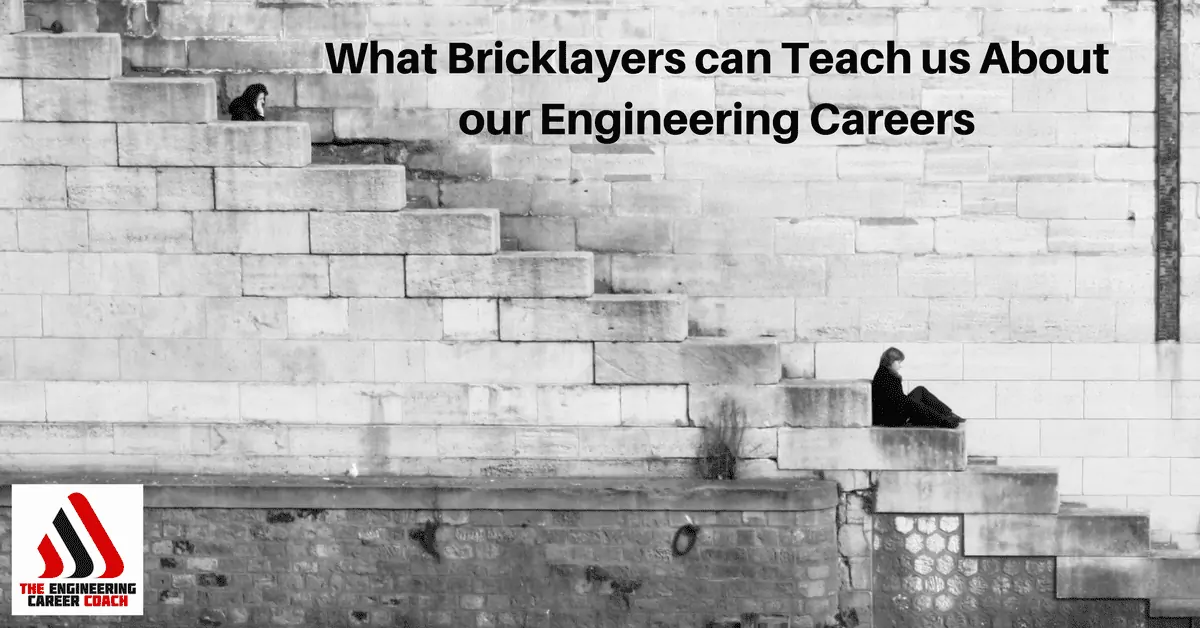This is a guest post by Patrick Sweet, P.Eng.

What do the three men’s answers tell us about how they perceive their work? The first bricklayer’s answer is focused on the task and nothing more. He sees bricklaying as a job. The second bricklayer sees the bigger picture and knows he’s making an important contribution to the project as a whole. He sees his occupation as a career. The third bricklayer sees his work as being integral to changing people’s lives for the better. He sees his work as a calling.
All three men are doing the same work from an outsider’s perspective, but their internal dispositions are all very different.
Why your internal disposition matters…
You might wonder why it matters that the bricklayers see their work differently. After all, if they’re equally good at laying bricks, what difference does it make?
As it happens, it makes a world of difference. The way you view your work can completely change your level of engagement with your work and in turn, the quality of your work. When you see your work as nothing more than a job, it can be hard to care a whole lot about the quality of the work. It’s hard to motivate yourself to put in the effort that is needed. You show up, put in your time, and go home.
If, on the other hand, you see your work as a career, then you think about what you do differently. Your work becomes part of something larger than yourself and your occupation becomes a step towards something greater later on in life. Your motivation and life satisfaction improves and you do better work.
Finally, if you see your work as a calling, you truly believe that you are providing value to the world you live in. You are passionate about your work, and you help others to feel that same drive. You love what you do and would probably do it for free. When you believe that you can make the world a better place, you often do.
How do you view your engineering work?
Which bricklayer mindset do you employ? If you see yourself as being more like the first, but wanting to be more like the second or third, how can you bridge the gap? I’ve been in all three positions at various times in my career. It’s normal and natural for engagement and viewpoints to fluctuate. I believe, however, that we should all strive to find a calling. If that’s not where you are in your career (which is the majority of people), I challenge you today to recognize that fact and think through what steps you might be able to take to change your situation.
After all, who would want to build a wall when they could be building the house of God? Or if we think of this as engineers, who would want to build a bridge, when you could facilitate millions of people getting to their destinations….
About Patrick Sweet
Patrick Sweet, P.Eng., MBA is a product and engineering management consultant, speaker, and the creator of EngineeringAndLeadership.com. He helps engineering teams and OEMs create profitable products, boost productivity, and manage complexity. You can reach Patrick at [email protected] or @engileader.
Please leave your comments, feedback or questions in the section below on what bricklayers can teach us about your engineering career.
To your success,
Anthony Fasano, PE, LEED AP
Engineering Management Institute
Author of Engineer Your Own Success





